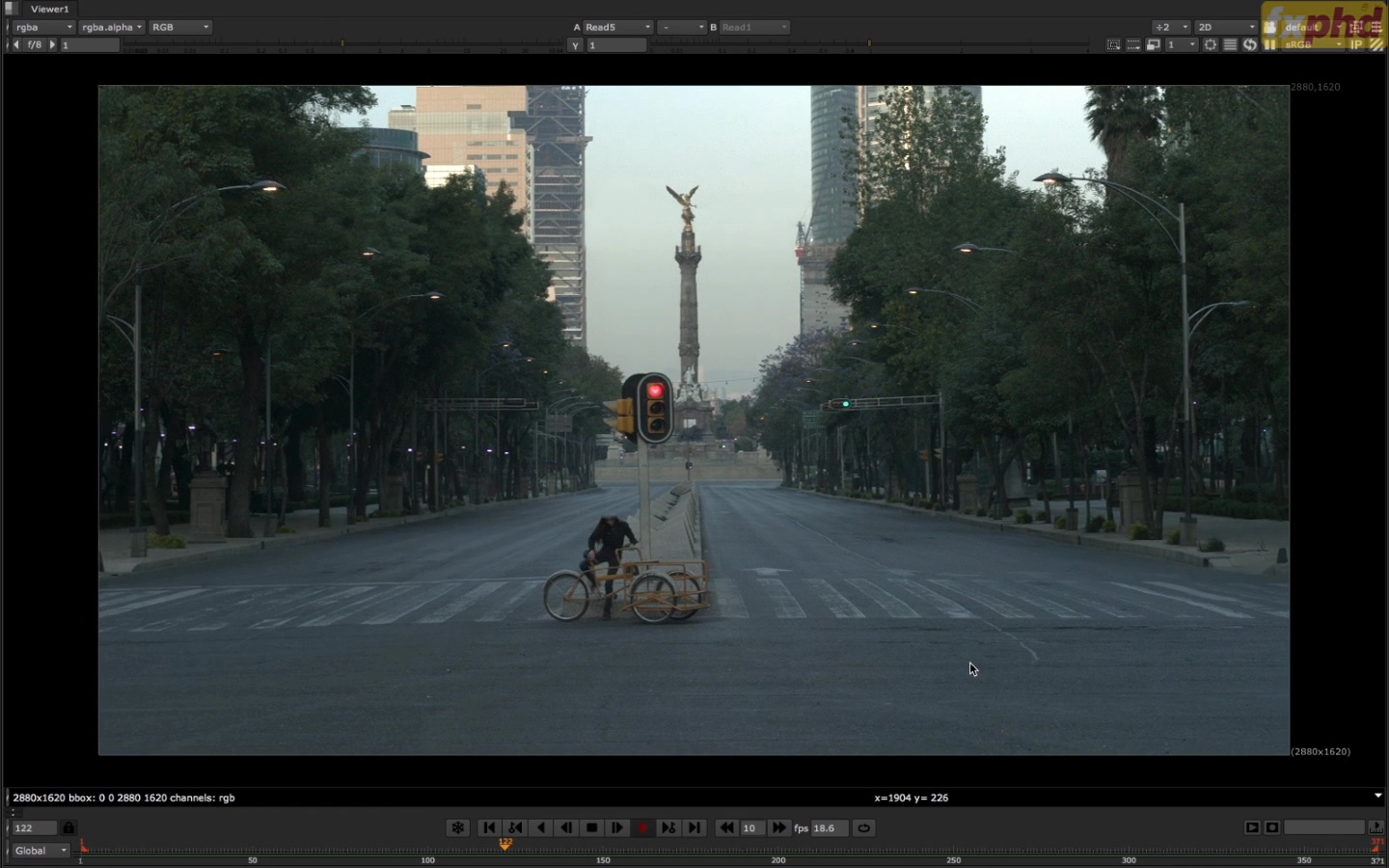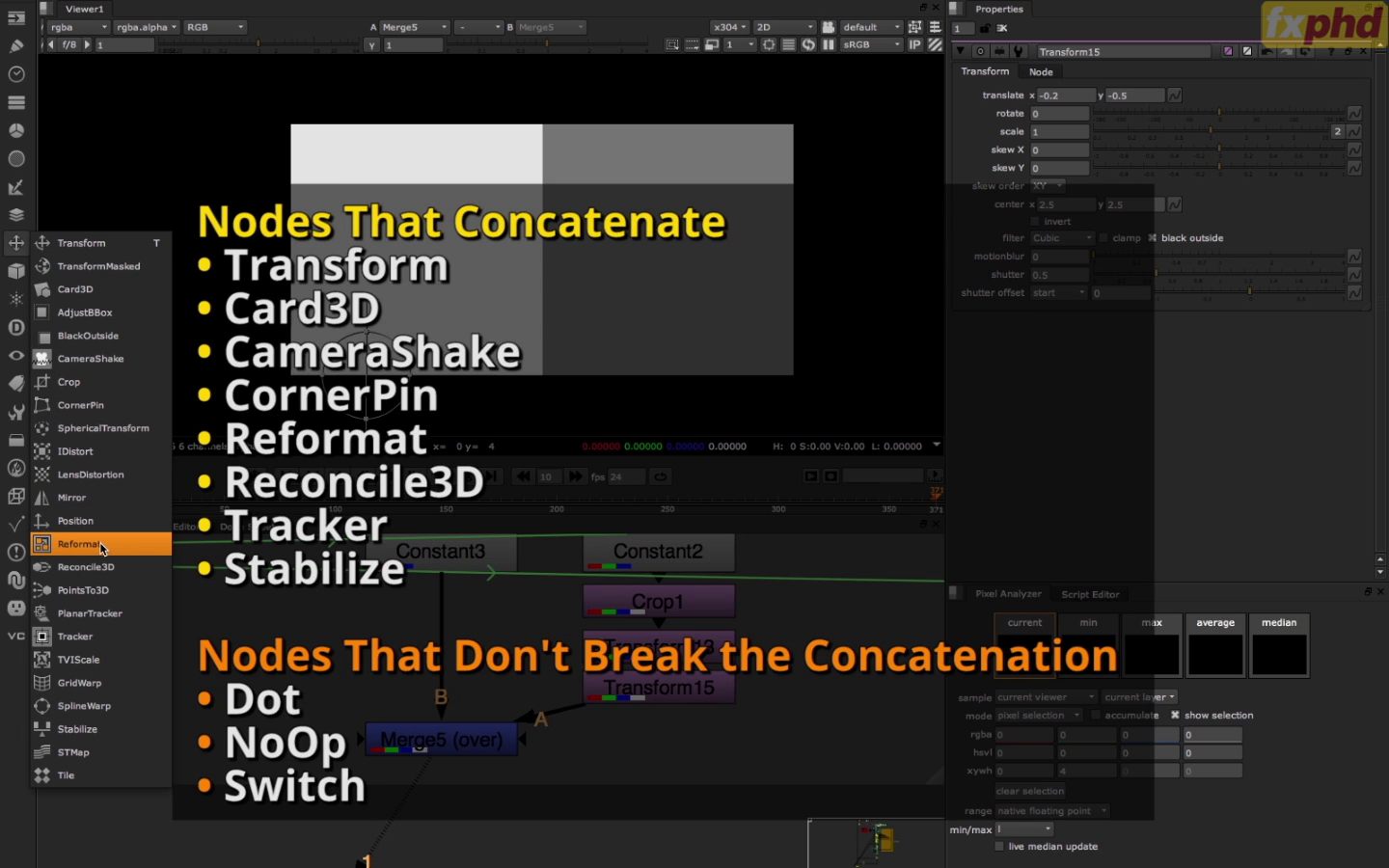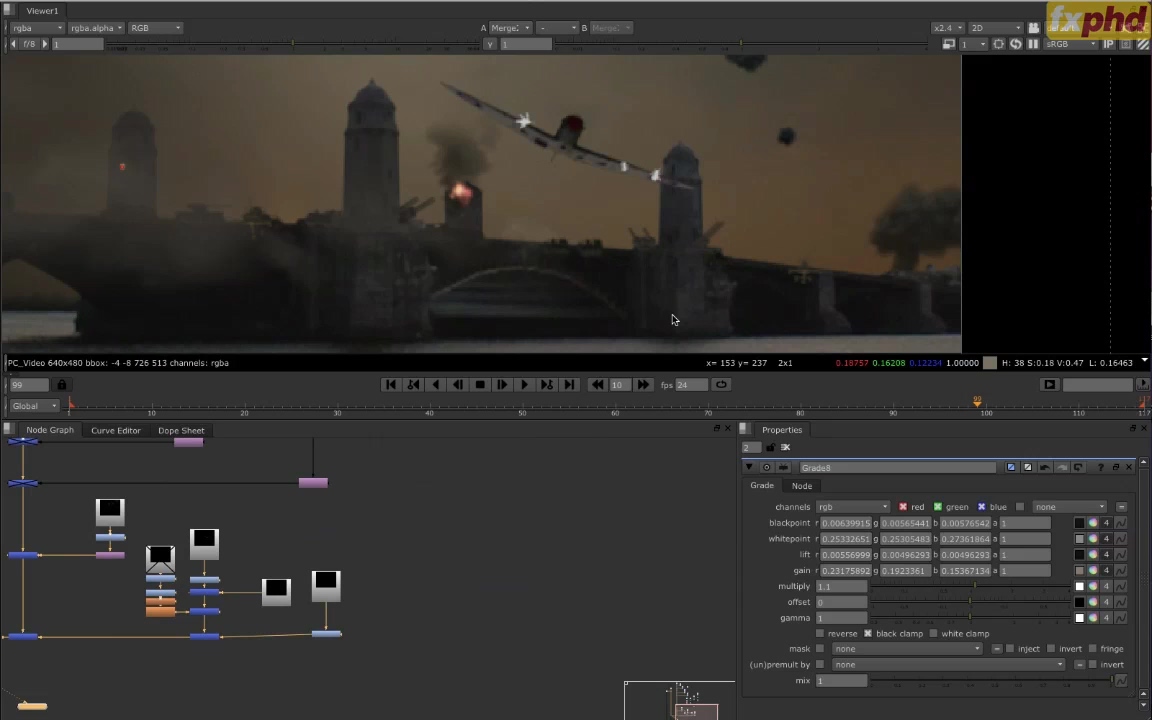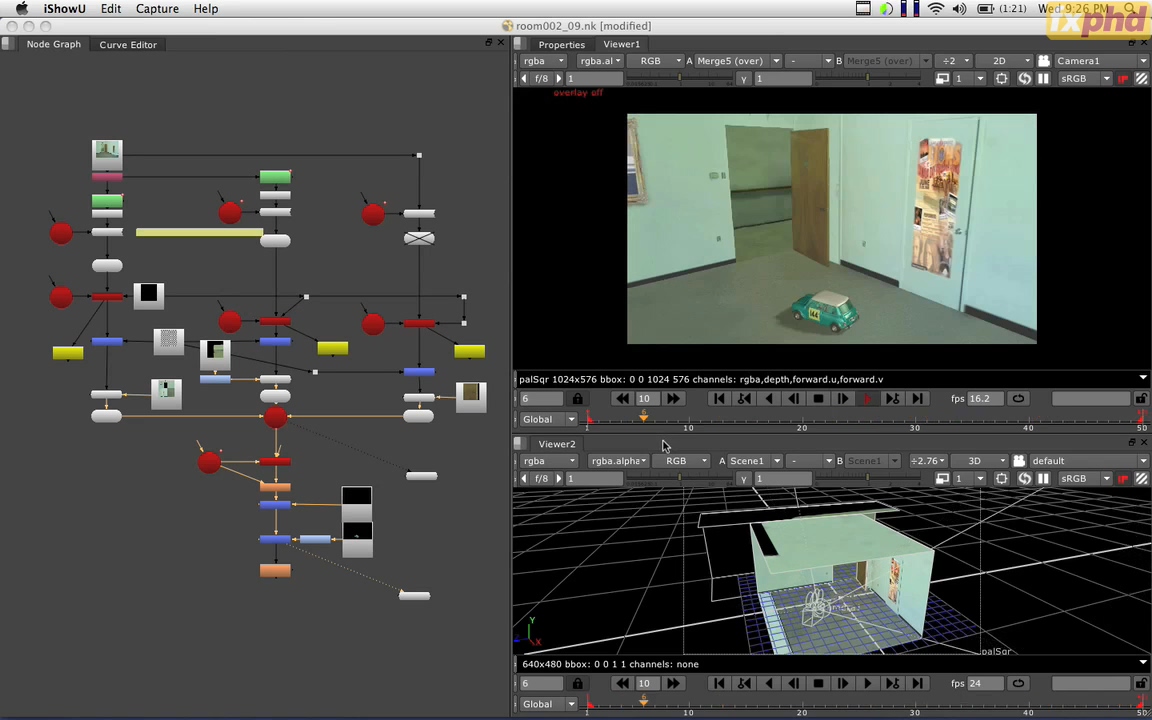Today I’ll describe my impressions and notes from NUK226 – Painting and Reconstruction Techniques with NUKEX
This course is finally the real deal!
It starts with tracking & lens distortion basics – each tracking type is reviewed (2d, 2.5d planar, 3d), and several lens distortion analysis methods & importance is revealed.
Chapter 2 throws us in the middle of production, by removing every visible person or car from Mexico city shot.
Useful things to note:
– AA-filters basics
– Concatenation
– Tracking basics
– Making clean-plates, coverage masks, BBox calculations, etc
– Source preserving and distortion-safe workflow tips
Then you get a deep 3d tracking excursus with some python basics, error checking.
Tip to note:
in pure python function calls you write knob(‘something’)
in nukescript (in labels or knobs) you do [knob something], or [value something] if you need a final value calculated.
Showing dense point cloud generation, and model reconstruction with several methods including Model Builder.
After that goes the face-tracking (without inner-face motions/emotions), followed by live brushes & some “digital makeup” (or makeover, I should say).
Next you dive into Python scripting, making snippets, generating nodes and links between them. The explanation is very simple to understand (although I knew python before :)).
Vignetting removal was touched shortly.
The you’ll see the usage of spherical mapping, generating environmental coverage from camera, optimization of spherical transformations by generating cubical 6-camera rigs + cubic-to-spherical transform. This part was long and boring, but maybe will be useful some day.
And lastly the Nuke<>Mari linkage is shown on an example of erasing cars from the road fly-by.

Generally, the course was useful. Many of good and deep production techniques and conventions are shown (e.g. making projection cameras blue).
It’s taught by Victor Perez, and believe me – this guy knows what he’s doing, and has a very deep production experience, and that’s seen in every motion and explanation. He likes to get deep into detail, showing the importance of every little step. I liked his approach very much, and no questions arose in any of the steps. Despite of his “mexican-english”, he’s easy to understand, and the video can be watched in 1.3-1.5X speed with ease. Although there were some moments when I turned it down do 1.0X where there was too much knowledge/per second 🙂


